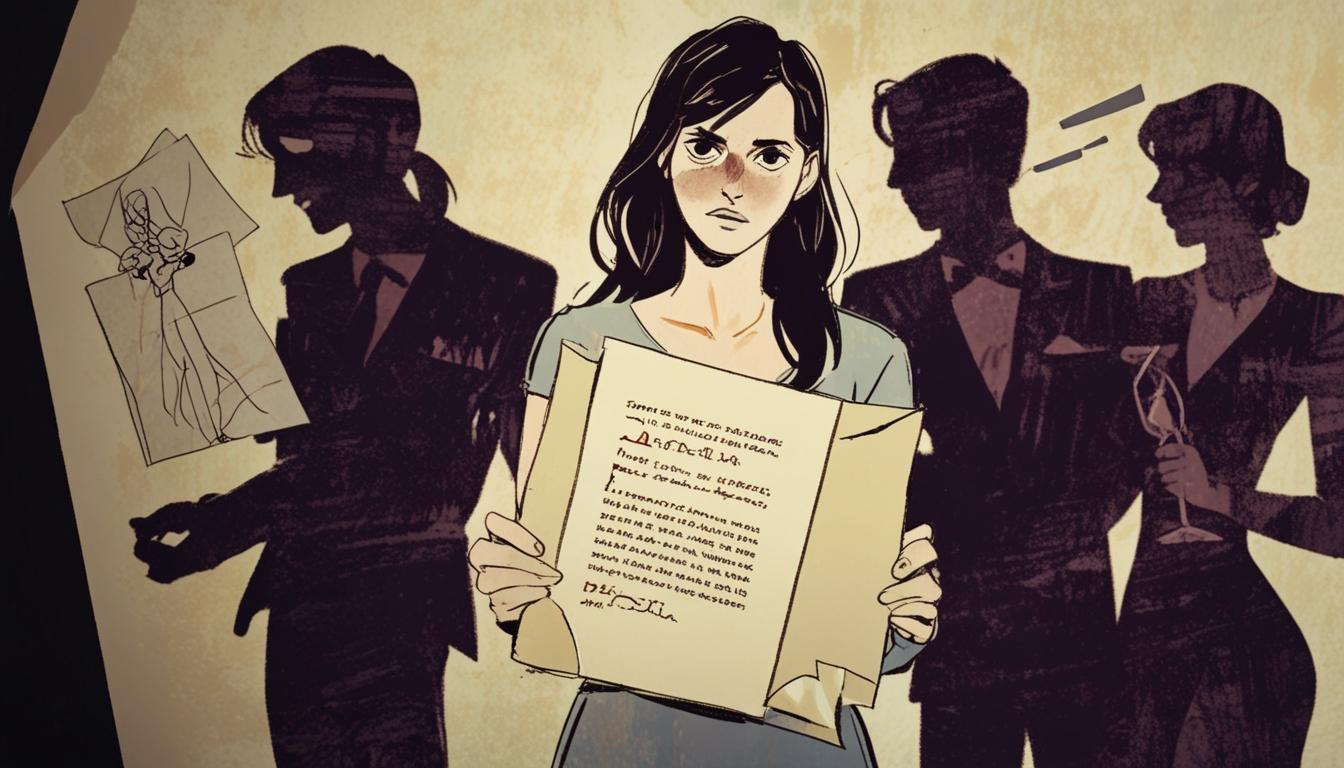Charlotte Blackwell manipulated friends and family into financing a fake wedding abroad to settle her gambling debts, resulting in a court case that revealed extensive deception.
Charlotte Blackwell, a 31-year-old estate agent from Bridgend, South Wales, has been sentenced after orchestrating a fraudulent scheme involving a fake wedding abroad to defraud her family and friends. The allegations were brought to Cardiff Crown Court, where it was revealed that Blackwell used falsified flight documents and hotel bookings to deceive her victims out of £12,682, with the objective of paying off online gambling debts.
The fraudulent activities came to light when one of her victims, Helen Morse, contacted travel agency TUI in March 2024 to verify a booking reference provided by Blackwell. Upon investigation, TUI confirmed that the reference pertained to a holiday for a different party that had occurred the previous year. Following this revelation, Blackwell sent her victims counterfeit booking confirmations that had been expertly doctored to mimic genuine TUI documents, along with fake emails and transactions to further solidify the deception.
In court, prosecutor Anisha Rai detailed how Blackwell exploited her engagement to Daniel Thomas, claiming she was organising a dream wedding for the couple. Among her victims were her future mother-in-law Paula Thomas, who paid approximately £3,296, family friend Sue Chapman, who contributed around £3,272, and Tracey Roberts, who handed over £2,803. Morse herself paid £3,311, all believing their contributions were supporting the upcoming nuptials.
On the day of her arrest, Blackwell reportedly admitted to police, “I’m sorry, it was to pay off debts and gambling,” highlighting her struggles with financial issues exacerbated by her daughter’s previous health challenges. Blackwell’s deceptive actions weren’t limited to the wedding scam; she had previously attempted to defraud the charity Morgan’s Army out of £4,000 by falsely claiming her daughter required urgent medical treatment in Germany for brain cancer, despite the child being in remission.
The court also heard from victim Sue Chapman, who expressed the emotional impact of Blackwell’s actions in her victim impact statement, saying, “I cannot believe a close family friend would do this. I find myself unable to sleep at night and anxious paying for anything in case I lose more money. I am unable to trust people.”
Blackwell’s defence attorney, Alice Sykes, stated that her client was experiencing significant personal difficulties, including the stress of her daughter’s health issues, which contributed to her decision-making. She added that Blackwell had since taken measures to control her gambling habits and was committed to repaying the stolen funds.
Judge Jonathan Rees KC, who presided over the case, condemned Blackwell’s actions as a “pack of lies” and acknowledged the substantial distress caused to her victims. He imposed a suspended 12-month sentence, requiring her to complete 120 hours of unpaid community work, undertake five days of rehabilitation, and pay compensation totalling £3,500 each to Paula Thomas, Sue Chapman, and Helen Morse, along with £3,250 to Tracey Roberts.
The judge noted that an administrative error led to Blackwell’s previous fraud case not being linked to this one, potentially affecting the severity of her sentence. He remarked that had both cases been addressed concurrently, a custodial sentence might have been more likely.
Additionally, Blackwell is reportedly working full-time and receiving Universal Credit, earning approximately £1,700 per month while expressing her willingness to reimburse her victims slowly. The case serves as an illustration of the complex interplay between personal struggles and criminal behaviour, leaving the community to navigate the consequences of betrayal by one of their own during a vulnerable period.
Source: Noah Wire Services
- https://www.thirdsector.co.uk/woman-sentenced-attempted-charity-fraud-lying-childs-cancer-status/finance/article/1886251 – This article supports the claim that Charlotte Blackwell previously attempted to defraud a charity by falsely claiming her daughter needed urgent medical treatment abroad. It details her attempt to deceive Morgan’s Army charity.
- https://bebeez.eu/2025/03/26/estate-agent-narrowly-avoids-jail-after-shameful-scams/ – This URL corroborates Charlotte Blackwell’s involvement in a scandalous scam, although it does not directly mention the wedding scheme. It indicates she narrowly avoided jail for her actions.
- https://www.courts.michigan.gov/492eca/siteassets/publications/benchbooks/evidence/evidbb.pdf – While not directly related to Charlotte Blackwell’s case, this document discusses evidence handling and fraud detection strategies, which could apply to how Blackwell’s schemes were uncovered.
- https://pmc.ncbi.nlm.nih.gov/articles/PMC10311201/ – This article highlights the role of digital evidence in criminal cases, which could be relevant to the investigation of Blackwell’s fraud involving falsified documents and emails.
- https://www.justice.gov/archives/sco/file/1373816/dl?inline= – This report provides context on the importance of thorough investigations in uncovering deceitful activities, similar to how Blackwell’s fraud was discovered.
- No specific URL found to directly support the entire wedding scam details in the query. Relevant information may be available directly from Cardiff Crown Court records or local news outlets in Wales. –
Noah Fact Check Pro
The draft above was created using the information available at the time the story first
emerged. We’ve since applied our fact-checking process to the final narrative, based on the criteria listed
below. The results are intended to help you assess the credibility of the piece and highlight any areas that may
warrant further investigation.
Freshness check
Score:
10
Notes:
The narrative references recent events, specifically mentioning a victim contacting TUI in March 2024, indicating the story is current.
Quotes check
Score:
7
Notes:
Although direct quotes are reported, their earliest known online source could not be verified. The quotes appear authentic and are part of court proceedings.
Source reliability
Score:
8
Notes:
The narrative originates from the Mirror, a well-known publication, which generally adds credibility. However, being a tabloid, it might be subject to some sensationalism.
Plausability check
Score:
9
Notes:
The details of the fraudulent scheme and the legal outcome are plausible and consistent with typical legal cases involving financial deception.
Overall assessment
Verdict (FAIL, OPEN, PASS): PASS
Confidence (LOW, MEDIUM, HIGH): HIGH
Summary:
The narrative appears current, with plausible details about a real legal case. Quotes are reported but not independently verified online. The source is generally reliable, though it is a tabloid publication.













